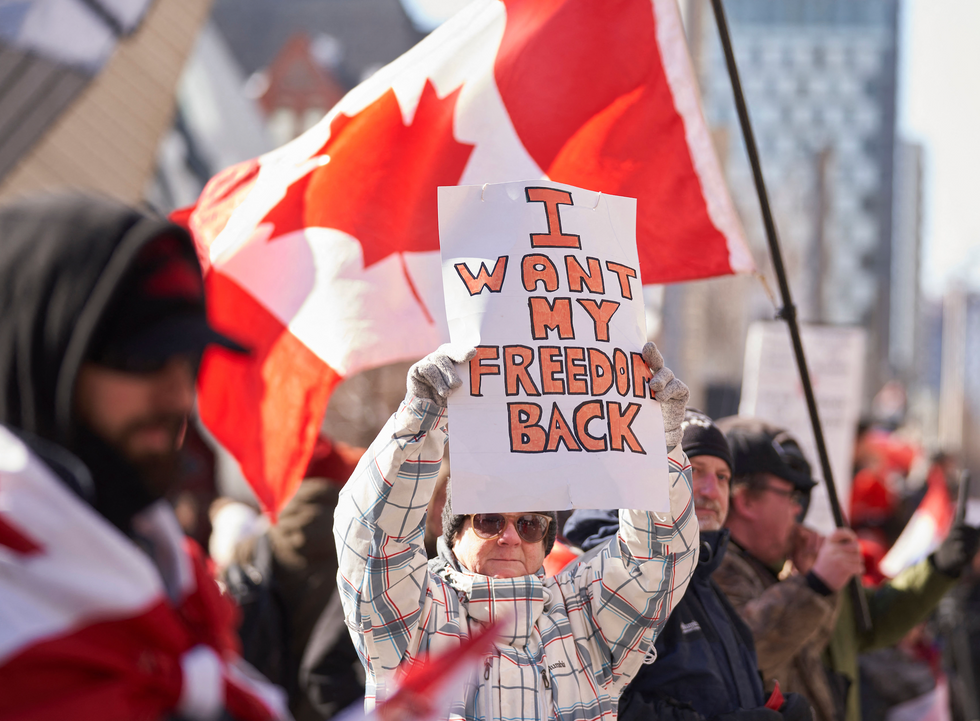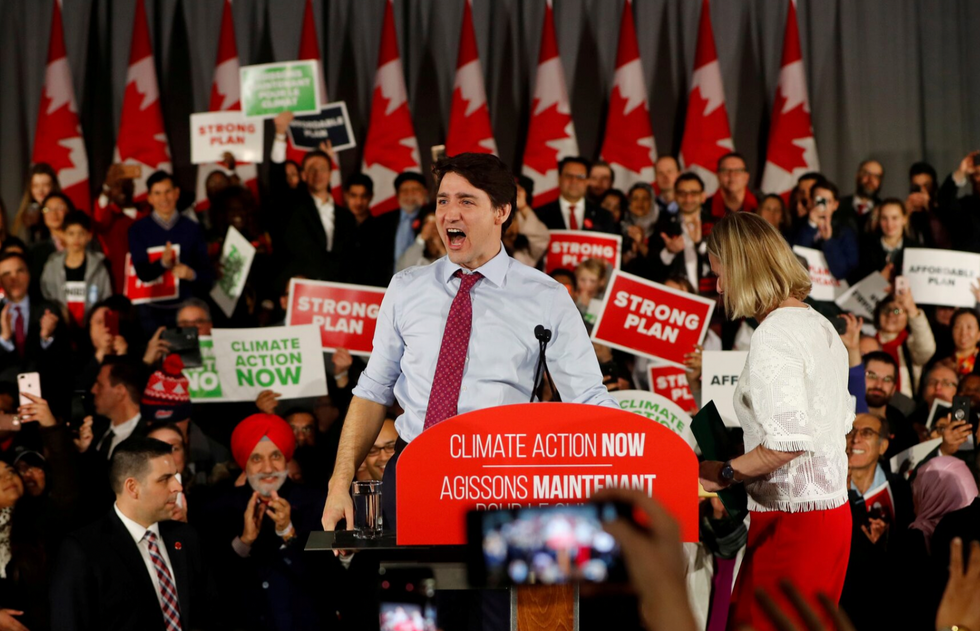From freezing protestors’ bank accounts to protecting pronouns, inside the woke downfall of Justin Trudeau
Justin Trudeau announced his resignation as leader of the Liberal Party on Monday, bringing his almost 10-year premiership to an end.
He stated that he would remain in office until his party selects a new leader. Parliament has been prorogued until March 24, 2025, to allow for this transition.
His decision to step down follows mounting pressure from within and outside his party, as the beleaguered Prime Minister failed to confront numerous economic and political headwinds during his time in office.
Here’s a rundown of the progressive policy decisions that ultimately derailed Trudeau’s premiership.
Emergency powers
Trudeau’s use of the Emergencies Act in 2022 to address the “Freedom Convoy” protests sparked a serious backlash and gave rise the accusation that he was flexing authoritarian muscles.
The protests were primarily against vaccine mandates and other COVID-19 restrictions, although they also encompassed broader anti-government sentiments.
The protests had paralysed Ottawa and several border crossings, including the Ambassador Bridge between Windsor and Detroit.
Trudeau argued that the protests posed significant challenges to law enforcement’s ability to maintain public order and safety.
However, critics countered that the measures taken were disproportionate to the situation, with former Conservative Leader Candice Bergen Trudeau of using an “unprecedented sledgehammer” and suggested his decision was driven by an “ideological attachment to keeping Covid restrictions and mandates”.
The government’s decision to direct financial institutions to freeze the accounts of individuals and entities believed to be involved in or supporting the protests, proved highly controversial.

Bill C-16
Trudeau’s government introduced Bill C-16, which received royal assent on June 19, 2017. This bill added “gender identity or expression” as protected grounds under the Canadian Human Rights Act and the Criminal Code.
This immediately sent shivers down the spine of free speech advocates, who warned that it could lead to compelled speech, where individuals might be forced to use certain pronouns under penalty of law.
It also reignited the debate of over how to define hate speech in a free and open society.
Trudeau and his colleagues consistently denied that the bill compels speech, insisting that the legal interpretations do not support such claims.
However, critics were not convinced. Among them was a little known academic called Jordan Peterson.
The then professor of at the University of Toronto released a series of YouTube videos criticizing Bill C-16, garnering millions of views in the process.
Immigration and housing
The decision to increase Canada’s immigration targets without adequate corresponding development in housing and infrastructure sparked a political disaster that Trudeau never quite recovered from.
This led to a significant increase in immigration, with plans to admit 465,000 immigrants in 2023 escalating to 500,000 in subsequent years.
This population surge was not matched by proportional increases in housing or infrastructure, leading to strain on existing resources.
The inflow has been linked to skyrocketing housing prices and a severe shortage of affordable housing, particularly in urban centers like Toronto and Vancouver.
Canadians also complain about a marked decline in healthcare and public services, where the infrastructure has not expanded at the same rate as the population.
Trudeau often emphasised initiatives like the National Housing Strategy as addressing this imbalance. The strategy includes a variety of initiatives like the Rental Construction Financing Initiative, the National Housing Co-Investment Fund, and the Rapid Housing Initiative, aimed at increasing housing supply, particularly affordable housing.
However, his Conservative critics, like Pierre Poilievre, questioned the effectiveness of these policies, highlighting the ongoing disconnect between high immigration and insufficient housing development.
Public sentiment also soured on the policy. A poll by the Environics Institute in September 2024 revealed that for the first time in 25 years, a majority of Canadians felt there was too much immigration, primarily due to housing shortages.
LATEST MEMBERSHIP DEVELOPMENTS
- MAPPED: The 50 towns and cities in Britain rocked by grooming gangs abuse – is YOUR area included?
- Starmer’s childhood hides a terrifying reality about his plans for rural Britain – Anna McGovern
- ‘No liquid assets!’ Farmer DISMANTLES Starmer tax argument in under 10 seconds as blockade

Carbon tax
Trudeau’s carbon tax, which was implemented during a period when Canadians were already grappling with rising living costs, proved highly unpopular.
The policy was intended to be an economically efficient way to reduce greenhouse gases, with Trudeau arguing it incentivises both businesses and individuals to lower their carbon footprint. The government redistributes much of the revenue back to citizens through rebates.
The Trudeau government’s communication strategy regarding how the carbon tax works (including rebates intended to offset costs for many households) was criticised for being inadequate.
Polling suggests the public was often unaware of or misunderstood the rebate system, leading to a widespread belief that they were losing money rather than potentially gaining from the policy.
The policy also proved political fodder for the opposition, particularly from the Conservative Party led by Pierre Poilievre, whose “Axe the Tax” campaign, effectively framed the carbon tax as economically harmful.
Blackface
Let’s not forget the time that Trudeau himself was almost cancelled.
In September 2019, during the Canadian federal election campaign, photos and videos emerged showing him in blackface and brownface on multiple occasions.
The first image was published by Time magazine, showing Trudeau at an “Arabian Nights” party in 2001, where he taught at a private school in Vancouver, dressed as Aladdin with his face, neck, and hands darkened.
Following this, additional images and a video from earlier in his life also surfaced, showing him in similar makeup at a high school talent show and another event in the early 1990s.
After the first image was published, Trudeau apologized, saying: “I take responsibility for my decision to do that. I shouldn’t have done it. I should have known better. It was something that I didn’t think was racist at the time, but now I recognise it was something racist to do, and I am deeply sorry.”
When asked about how many times he had worn blackface or brownface, Trudeau replied: “I am wary of being definitive about this because of the recent pictures that came out, I had not remembered”, acknowledging his “massive blind spot” due to his privileged background.
His apology did not stop the pile-on, with critics, including political opponents, pointed out the hypocrisy given Trudeau’s public stance on diversity and inclusion, with Conservative leader Andrew Scheer claiming Trudeau was “not fit to govern this country”.

